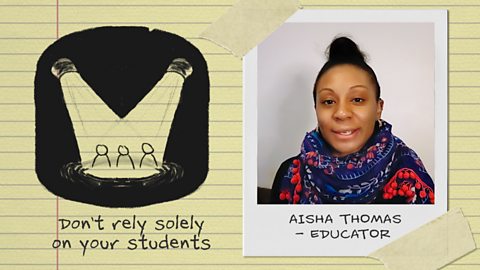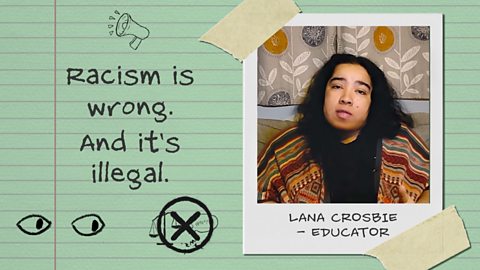South Asian students share their experiences of prejudice and its impact on their learning experience, and offer suggestions on how to support students.
Notes by film-maker and diversity inclusion facilitator Dr Mena Fombo (with film-maker Michael Jenkins and Assistant Principal & Diversity and Inclusion education consultant, Aisha Thomas).
The tips:
Acknowledge cultural and religious similarities and differences
In the film students speak about the importance of being acknowledged not only as South Asian but by their actual ethnic origins. As one student says: ÔÇÿRecognise who is Pakistani, Bangladeshi, Indian, Sri Lankan or any other South Asian background.ÔÇÖ As Head of Year 11 Hardeep Konsal explains: ÔÇÿWe may all celebrate some things, but we celebrate them for different reasons.ÔÇÖ
When we fail to acknowledge who a young person is or how they identify it can be both damaging and traumatic. It reinforces the importance of taking time to get to know your students, understand how they want to be referred to, and also transferring that learning to other students.
Knowledge is powerful
ÔÇÿWe donÔÇÖt know everything. Instead of putting us on the spot they could do their own research.ÔÇÖ(Secondary school pupil)
Students said they were open to the idea of teachers asking them appropriate questions about their culture and heritage - but they did not wish to be put on the spot in front of classmates. Students felt that if / when teachers do ask questions, they should recognise young people do not know everything about their ethnic origins, especially because many were born and raised in the UK and so were at various stages of learning about their heritage.
Listen
ÔÇÿIf you donÔÇÖt really listen to them, they donÔÇÖt feel like they can come to you.ÔÇÖ
(Secondary school student)
The film emphasises again the importance of listening and providing opportunities for students to share their concerns.
Representation matters
'Within the curriculum there is a limited amount of representation. Representation matters across the board.'
(Hardeep Konsal)
Hardeep says that the contributions made by South Asians and other groups to the UK are often overlooked, while a student asks for her and other students from South Asian backgrounds to have more opportunities to talk about their culture in school.
Take action
ÔÇÿI found out people were mocking my accent and my cultureÔǪ It was heart-breaking.ÔÇÖ
(Secondary school pupil)
ItÔÇÖs important to ensure that students and teachers understand the basics of the Equality Act 2010 and the different protected characteristics. When a student is being mocked because of their accent, if that accent relates to their race, then it is protected by law. It doesnÔÇÖt mean to say that a young person mocked for a regional accent wouldnÔÇÖt also feel hurt and the situation still need addressing.
ÔÇÿWe have a right to feel safe, and you need to protect us.ÔÇÖ
(Secondary school pupil)
Safeguarding young people is the responsibility of everyone and we need to remember that when we are not challenging discrimination, or when we stereotype young people and let our bias show, we are causing them harm.

Black allies. video
Black students and teachers share their experiences of racism in school and offer tips for safeguarding students.

Mixed heritage allies. video
Issues of identity and heritage are explained by students and teachers seeking a more inclusive classroom experience.
